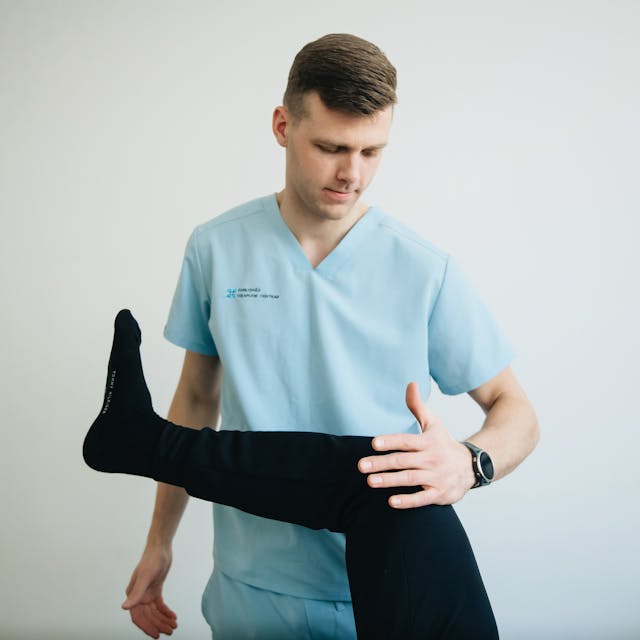All You Need to Know About Knee Surgery in Melbourne: An All-Inclusive Handbook

Especially if you are negotiating knee surgery for the first time, it can feel intimidating. Knowing your alternatives is absolutely vital whether your condition is chronic pain, a sports injury, or arthritis. Fortunately, Melbourne has some of the top orthopaedic surgeons as well as contemporary facilities catered to knee treatment.
This thorough guide will take you through all you must know about knee surgery in this energetic city. Let’s explore what lies ahead on your path towards increased mobility and enhanced quality of life from the several kinds of procedures accessible to advice on recovery and rehabilitation.
Different Kinds of Knee Surgery
Knee Surgery Melbourne is the spectrum of operations catered to certain situations. One widely utilised popular technique for diagnosis and treatment of conditions including meniscus tears or ligament damage is arthroscopy. This minimally invasive approach calls for a small camera being placed into the knee joint.
Another often performed operation is total knee replacement. Usually, it is advised for severe arthritis in cases where other therapies have not worked. This procedure restores function by substituting synthetic components for injured cartilage, therefore relieving discomfort.
For patients with injury limited to one portion of the joint, partial knee replacement provides another option. Surgeons preserve healthy tissue while replacing just the impacted section.
Among athletes with damaged ligaments, including the anterior cruciate ligament (ACL), ligament reconstruction is also somewhat common. The surgeon rebuilds robust knee support using grafts.
Every kind has advantages and drawbacks, hence you should talk to a knowledgeable surgeon about your possibilities.

Identifying the Correct Melbourne Surgeon
A major step in your knee surgery path is selecting the correct surgeon. Melbourne offers you access to a lot of very talented people. Look first at qualifications and board certificates. This guarantees their area of expertise is knee operations.
Search for surgeons with a lot of expertise carrying out the particular procedure required. Review patient notes to determine degrees of satisfaction and results. Also quite helpful are personal referrals from friends or relatives.
Don’t hesitate to probe during consultations. Talk about their method, tools used, and anticipated times of recuperation. You really should be at ease with their communication approach.
Think about their practice location as well; closeness will simplify surgical day logistics. Trust your gut feeling; find a surgeon who will make you confident about your choice on knee condition.
Ready for knee surgery?
Getting ready for knee surgery consists of several crucial actions. Talk first about your medical history to your surgeon. This knowledge is absolutely vital in customising the treatment to fit your requirements.
Arrange them for help at home following surgery. Simple chores like driving or cooking could be difficult at first, hence having a friend or relative helps to smooth the change.
Think about changes in lifestyle before surgery. Low-impact exercises can assist strengthen the muscles around your knee and enhance results of healing.
Remember also pre-operative instructions sent by your healthcare team. To make sure everything goes without a hitch, they could counsel you on dietary restrictions or drugs to avoid before surgery day.
Prepare both physically and psychologically. Relaxation exercises and visualising methods help to lower anxiety and promote a good attitude before your operation.

Rehabilitation and Recovery
A good recovery depends on the road taken following knee surgery. Restoring strength and movement requires rehabilitation in major parts. Usually starting shortly following the surgery, it starts in days.
Often prescribed to assist restore range of motion is physical therapy. Exercises suited to your requirement will be guided by a qualified therapist. These could comprise progressively increasing intensity stretching and strengthening exercises.
A crucial component of the process is also pain management. To help your surgeon keep discomfort under control, they could advise over-the-counter remedies or prescription drugs. Further reducing swelling is ice packs and elevation of your leg.
As you advance, pay more attention to consistent movement without overly taxing your knee. Although first you might need walking assistance like crutches or walkers, try for independence right away.
During rehabilitation, pay close attention to your body; rest when necessary but keep active within the restrictions your healthcare practitioner specifies. Frequent follow-up visits will enable tracking of recovery and, if needed, modification of treatment strategies.
Depending on the operation carried out and personal situation, rehabilitation might take weeks to months; so, patience is crucial over this period. Every little success brings you closer to confidently starting daily activities once more.
With commitment and help from friends, relatives, or doctors, you will see changes over time that justify every effort.








